🔅 Are Debt-Swaps For Climate Action Africa's Solution?
Plus: Kamala Harris' Billions for Africa, M23 Rebels Evacuate Congo Town, UN: South Sudan Officials Behind Human Rights Violations, And much more... ☕
Photo of the day: Kampala, Uganda

Markets:
🔻 Nigerian SE: 54,035.39 (-0.27%)
🔺 Johannesburg SE: 77,458.58 (+1.10%)
🔻 Ghana SE: 2,759.98 (-0.05%)
🔻 Nairobi SE: 112.80 (-0.40%)
🔻 US S&P 500: 4,098.33 (-0.63%)
🔺 Shanghai Composite: 3,312.56 (+0.49%)
Global Markets: The first quarter of 2023 was a wild ride—especially if you invested in the US. Ultimately, tech companies led a surge in stock values, with the Nasdaq Composite index up a staggering 18% since the start of the year—its largest quarterly gain in two years. Microsoft and Alphabet stocks are up 20% and 16%, respectively, and your crypto-crazed cousin is probably throwing a victory party over Bitcoin’s 72% surge. Banks, on the other hand, have been dealing with the biggest bank collapses in US history, as well as rising interest rates, so not everything is on the up.
*Data accurate as of the close of markets across the continent
CLIMATE CHANGE & ECONOMY
Debt-Swapping For Climate Action: Africa's Solution?

Africa is no stranger to the effects of climate change - droughts, floods and extreme temperatures have all taken a toll.
And a couple of weeks ago, finance and economic ministers from African countries met in Ethiopia to discuss a possible solution: debt-for-climate swaps.
What exactly are debt-for-climate swaps?
A debt-for-climate swap is an economic tool that allows debt to be swapped for commitments on green investments. It’s one of several alternative green financing models discussed at the UN conference, as a way to fund adaptation to climate harms, protect nature and finance local communities.
Why is it needed?
Because Africa is facing a double whammy. Many African nations are battling the effects of climate change-fueled events, but their budgets are stretched by external debt and other basic needs. Borrowing is often the only option for some nations, but borrowing is becoming increasingly expensive due to rising interest rates.
To make matters worse, private sector investments in climate finance are lower in Africa than in any other part of the world.
What were other solutions discussed?
Finance ministers also discussed bonds to help increase private financial flows and “blended finance” models that would combine development funds and private capital as potential solutions for climate funding.
These methods have been gaining traction, along with criticism that current mechanisms don’t work for countries ravaged by climate extremes but have contributed little to the planet-warming emissions in the atmosphere.
The IMF has established a $50 billion climate loan pot to help low and middle-income nations access financing, while the World Bank has pledged an additional $50 billion pot. The Green Climate Fund has also approved $580 million in new climate finance for developing nations, and Rwanda has become the first African nation to receive a loan from this fund.
But is it enough?
That remains to be seen.
The $50 billion World Bank pot is only sending around 5% of its funds to the ten most climate-vulnerable countries, four of which are in Africa. So, the jury is still out on whether debt-for-climate swaps and other green financing models will be the answer for African countries.

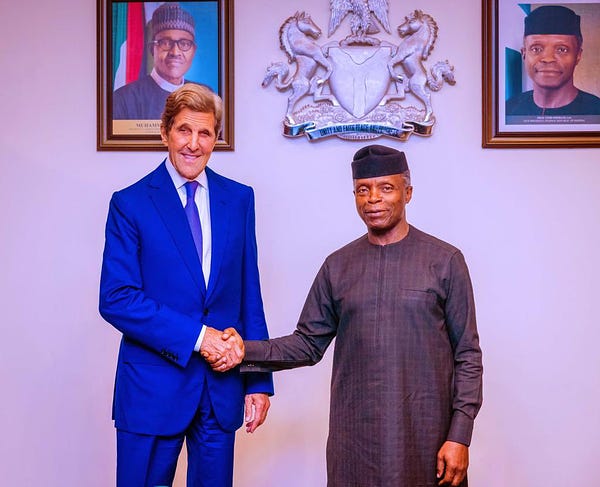
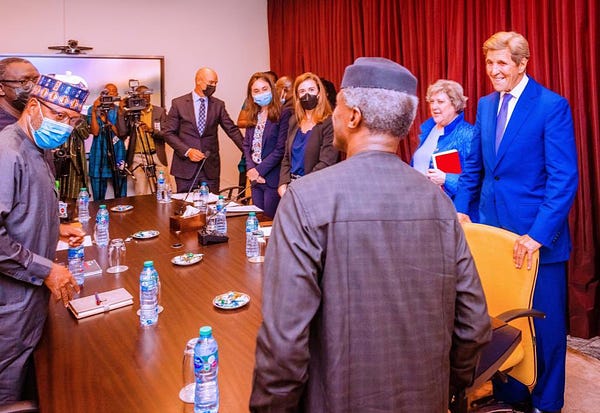
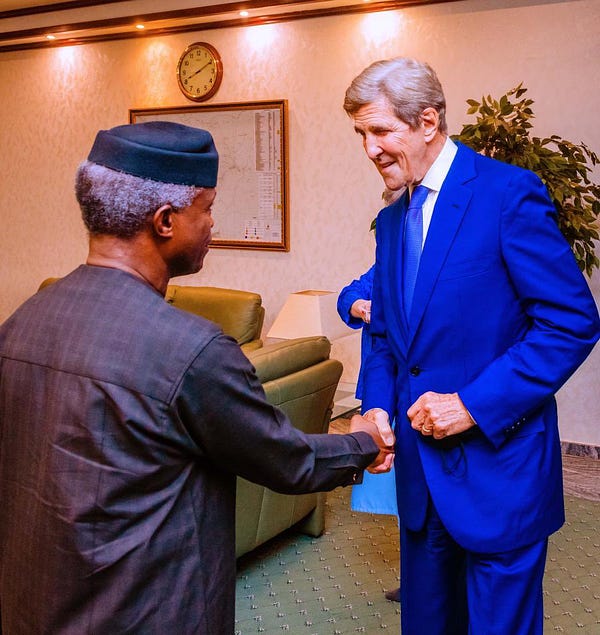
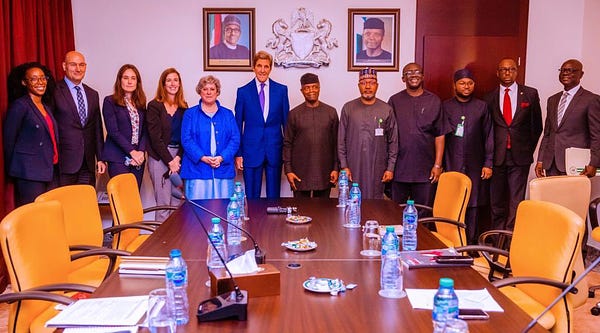
Share Baobab with friends and colleagues for free daily updates on African business, money, and current affairs.
OTHER HEADLINES
Across the Continent
🌍 Kamala Harris' Billions for Africa | What better way to show your commitment than to pledge over $7 billion in private-sector and US-government commitments to help lift up over 116 million farmers and promote climate-smart agriculture? That’s exactly what the US Vice President did during her historic trip to Ghana, Tanzania, and Zambia. In Ghana, she announced an investment to help deal with the threat of violent extremism and instability. In Tanzania, she committed bilateral assistance to economic, business, and cultural initiatives, and supported an anti-malaria project. In Zambia, she urged the country’s creditors to speed up the restructuring of its debt, and announced US investment for new programs. All this was part of the Biden administration’s strategy to reclaim the US’ role as a major player in Africa, and as a counter to the growing influence of Russia and China.
🇨🇩 M23 Rebels Evacuate Congo Town | It's been nine long months, but the M23 rebels have finally cleared out of Bunagana, a strategic town in eastern Congo. Ugandan forces deployed to the area will make sure the rebels stick to their promise and won't be back. This is a major step forward in the mediation efforts between the M23 rebels and the Congolese government. After a decade of dormancy, the M23 resurfaced in late 2021 and started taking over territory, and Congo has long accused Rwanda of supporting the group—an accusation that Rwanda denies. The Ugandan troops will now move on to other areas that are still under rebel control, including Kiwanja and Mabenga, hoping to do the same.

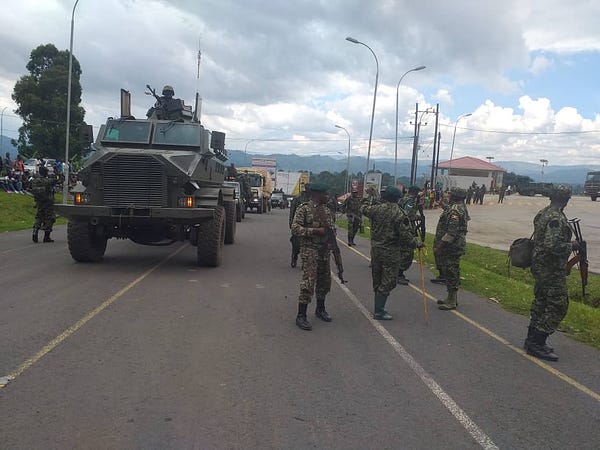
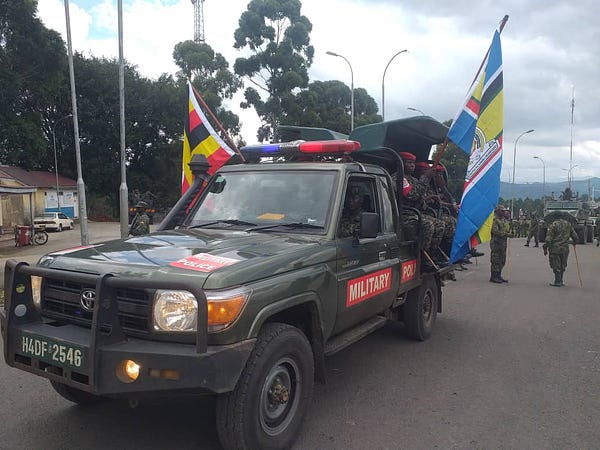
🇨🇩 UN: South Sudan Officials Behind Human Rights Violations | A new report from the UN-backed Commission on Human Rights in South Sudan has named and shamed some officials for their role in human rights violations. The list of names includes Governor Joseph Monytuil, Lt. Gen. Thoi Chany Reat, and Koch County Commissioner Gordon Koang. These guys allegedly had a hand in extrajudicial killings and attacks on civilians in Unity State, Mayom County, and Leer town. Yasmin Sooka, head of the investigating commission, said that “impunity” is a big problem in South Sudan and that perpetrators of the most serious crimes remain unpunished. So, they took the step of “naming more of the individuals who warrant criminal investigation and prosecution for their role in gross human rights violations.”

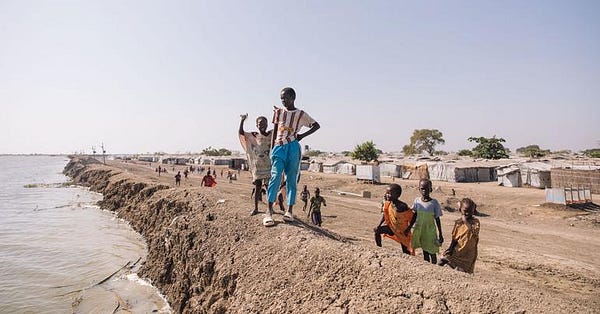
FOOD FOR THOUGHT
Proverb of the Day
“One who has to yet learn to walk cannot climb a ladder.”
— Ethiopian Proverb.




